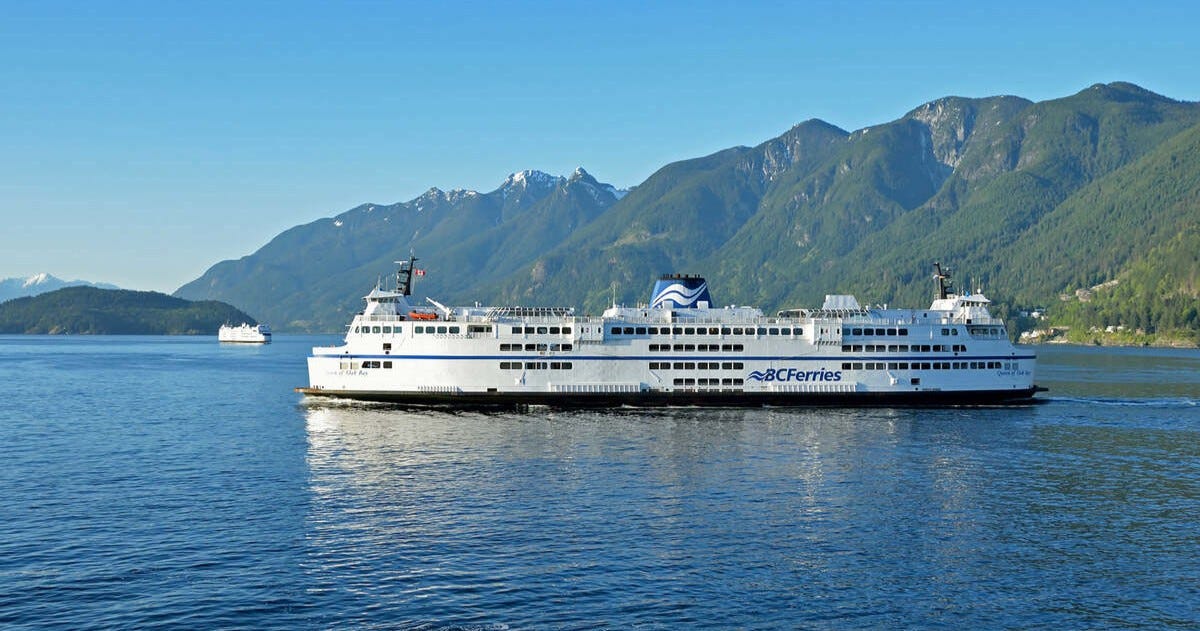B.C. Ferries to buy foreign ships despite Eby’s “buy Canada” bluster
Despite ongoing political rhetoric about supporting Canadian industry and reinvigorating the local economy, B.C. Ferries has confirmed that four major new vessels will be built overseas.
Despite ongoing political rhetoric about supporting Canadian industry and reinvigorating the local economy, B.C. Ferries has confirmed that four major new vessels will be built overseas.
The provincial Crown corporation has yet to decide which company will be awarded the contract but what is known is that the work won’t be done by a Canadian company.
Both Liberal Leader Mark Carney and Premier David Eby have talked about the need to bolster the domestic economy in the wake of U.S. tariffs but B.C. shipyards say they are unable to compete with foreign companies without incentives.
Carney has been campaigning with the message, “it’s time to build,” saying that he will ensure that “Canadian workers have the tools they need to take on the challenges of today and tomorrow.”
Eby announced in February that he “directed government and Crown agencies to exclude US suppliers from any new purchasing or procurement agreements.”
“It’s just one of the actions we are taking to prioritize Canada first,” said Eby.
However, Seaspan, which owns B.C.’s largest shipyards has previously expressed its desire to bid on building B.C. Ferries’ major vessels.
“We believe that there is a great opportunity for the province of B.C. to show leadership by developing a strategy by which future B.C. Ferries vessels could be built in B.C. and therefore provide much larger strategic and economic benefits to the province,” wrote David Hargreaves, Seaspan’s senior vice-president of strategy, in a letter to the Office of the B.C. Ferries Commissioner.
However, the company cannot currently build all of the vessels in the timeframe required by B.C. Ferries.
Seaspan has made the government aware that it can’t compete with its counterparts in Quebec, which provides provincial support to its shipyards and requires vessels to be built domestically while offering tax credits, forgivable loans and grants of over $1 billion.
The company must also face competition with low-wage countries which benefit from having fewer environmental and safety standards.
According to the company's executive director of shipbuilding Ed Hooper, no Canadian shipyards were able to submit proposals for the contracts.
“Our focus is on selecting a builder with a strong track record — one that can deliver safe, reliable and high-quality vessels while offering long-term value,” said Hooper in a statement.
“While affordability is an important factor, it’s part of a broader evaluation that prioritizes safety, performance, and the ability to meet the needs of ferry users and coastal communities well into the future.”
B.C. Ferries hasn’t employed a local shipyard to construct major vessels since the Spirit of British Columbia and Spirit of Vancouver Island were built by Allied Shipyards in North Vancouver and Integrated Ferry of Esquimalt in 1993 and 1994.
B.C. Ferries has routinely procured foreign companies to build its vessels, such as four Island-class electric vessels built in Romania as well as Salish-class vessels built in Poland.
Back in 2007 and 2008, B.C. Ferries had three Coastal-class vessels built in Germany for a staggering $500 million.
The latest project is slated for completion by 2029 with the contracts to be awarded by June but those bidding cannot yet be named publicly as the process is ongoing.
According to Hooper, local shipyards may still be able to contribute to the project in other ways.
“The local industry has always played a critical role in maintaining our fleet, and that will continue,” he said.


